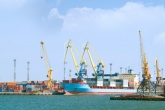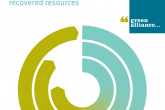UK plastic exports to Malaysia triple following China ban
UK plastic waste exports to Malaysia have tripled in the first four months of 2018 following China’s ban on 24 grades of solid waste at the start of the year, according to the latest HM Revenue and Customs (HMRC) figures.
China announced at the start of the year that it would be banning imports of certain types of solid waste, including post-consumer plastics and mixed papers. This provoked panic in the UK recycling industry given that the UK – up until the start of the year – relied on China as an outlet for waste that could not be recycled domestically, sending around 494,000 tonnes of plastics and 1.4 million tonnes of recovered paper to China every year.
In preparation for the ban, many UK recyclers searched for alternative markets for waste materials, with countries in South East Asia identified as possible options, including Thailand, Malaysia, Taiwan and Vietnam.
Given the sheer size of China’s market in comparison to its neighbours, the ability of these markets to absorb the capacity previously provided by China has been seriously called into question. Despite these concerns, however, the latest figures from HMRC show that this has not dissuaded UK recyclers from sending their waste to these markets, with exports of plastics to Malaysia tripling, becoming the single largest destination for UK plastics waste, while exports to Thailand increased by fifty times and those to Taiwan increased by ten times.
Meanwhile, UK exports of plastics waste to China have fallen by 97 per cent, falling behind France and Italy, while the amount sent to Hong Kong has fallen by 71 per cent. Overall, total plastic waste exports from the UK have fallen from 243 million kilogrammes (kg) in the first four months of 2017 to 215 million kg in the corresponding four months in 2018.
Speaking to the Financial Times, Jacob Hayler, Executive Director of the Environmental Services Association (ESA), highlighted the need to create demand for recycled plastics and questioned the ability of alternative markets outside of China to absorb displaced tonnages of plastic waste in the long term, stating: “We absolutely need more investment in infrastructure here in the UK. China was a huge destination which will be very hard to replace... We have managed to find new markets to send the material to, so they will still be recycling. One of the question marks is how sustainable this will prove over time.”
The need for answers to such questions appears to be pressing, with several countries pushing back against plastic exports. Vietnam has seen several ports stop taking plastic waste imports due to a backlog fuelled by a 50 per cent increase in imports from the UK, while Malaysia and Poland are set to review their plastic waste import policies.
Calls have been made to stimulate secondary markets for recycled plastics in the UK to avoid the need for exports, with a report released last week (14 June) by environmental think tank Green Alliance stating that recycled plastics could provide 71 per cent of domestic manufacturing demand, while the government’s Industrial Strategy released last November cited the need to strengthen secondary markets and domestic demand for recycled materials. The industry now awaits the highly anticipated Resources and Waste Strategy expected for autumn for evidence that the government has taken these calls on boardt.
Concerns have also been raised regarding the environmental benefit of the UK’s practice of exporting plastic waste to developing markets that have significantly less developed waste management systems than the UK, bringing into question whether the exported waste is actually being recycled. Research from the Helmholtz Centre for Environmental Research in October 2017 revealed that 88 to 92 per cent of all plastic entering the marine environment comes from ten rivers in Africa and Asia, highlighting the issue of less sophisticated waste management systems in the developing world.
Recognising this, in March this year, charity WasteAidUK, which works with communities in countries with less developed waste management systems to share replicable recycling techniques and encourage a more circular approach to waste, called for the UK Government to increase overseas spending on waste management projects after releasing a report with the Chartered Institute of Wastes Management (CIWM), which found that plastic in the world’s oceans is inextricably linked to poor waste management in developing countries.







